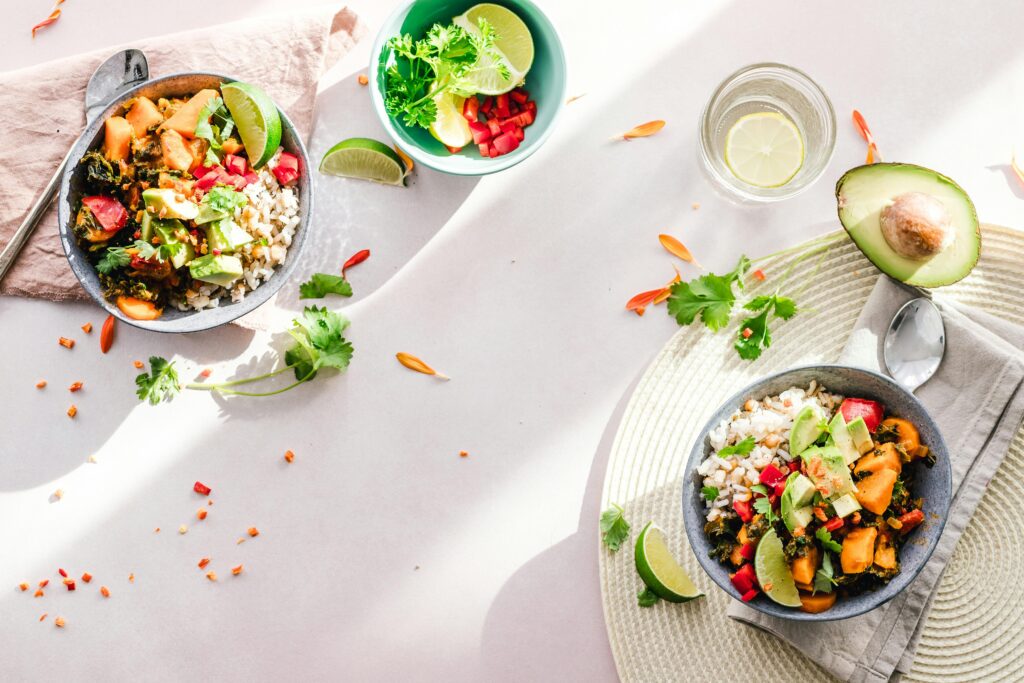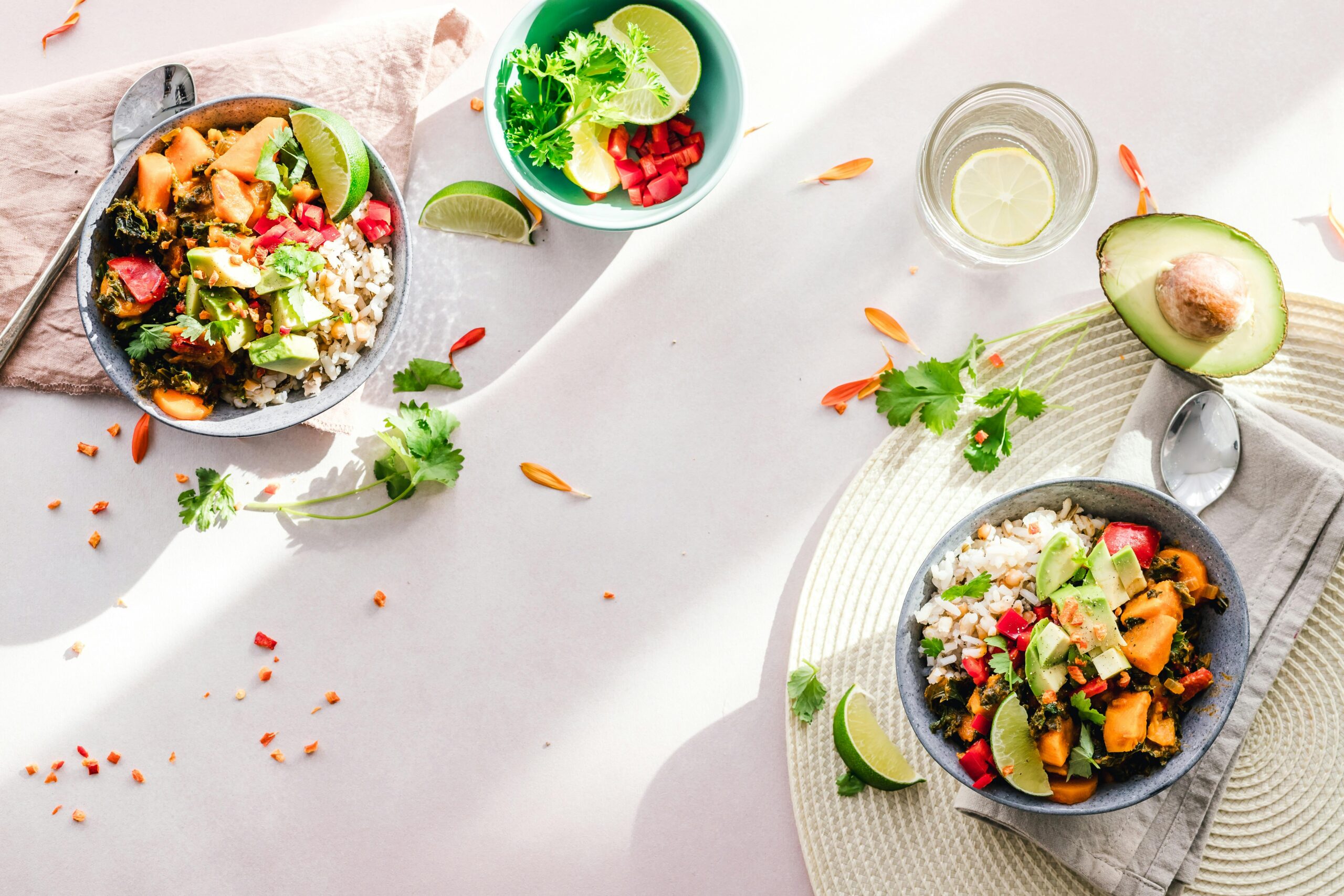Meta Description: Discover the best foods to reduce stress and anxiety naturally. Learn how a balanced diet supports mental health and promotes relaxation.
Introduction
Stress and anxiety are common challenges in today’s fast-paced world. While therapy, exercise, and medication can help, your diet plays a crucial role in managing these conditions. Certain foods boost mood, reduce cortisol (the stress hormone), and promote relaxation.
In this article, we’ll explore the best stress-relieving foods, how they work, and practical tips for incorporating them into your daily meals.

How Diet Affects Stress and Anxiety
The gut-brain connection is powerful—what you eat directly impacts your mood. Key nutrients that help manage stress include:
✅ Magnesium – Calms the nervous system.
✅ Omega-3 Fatty Acids – Reduce inflammation linked to anxiety.
✅ B Vitamins – Support neurotransmitter function.
✅ Antioxidants – Combat oxidative stress.
✅ Probiotics – Improve gut health, which influences mental well-being.
A poor diet (high in sugar, caffeine, and processed foods) can worsen anxiety, while a balanced one promotes emotional resilience.
Top Foods to Reduce Stress and Anxiety
1. Fatty Fish (Salmon, Mackerel, Sardines)
- Rich in omega-3s, which lower inflammation and anxiety.
- Supports brain health and serotonin production.
2. Leafy Greens (Spinach, Kale, Swiss Chard)
- High in magnesium, which helps regulate cortisol.
- Contains folate, which aids dopamine production.
3. Berries (Blueberries, Strawberries, Raspberries)
- Packed with antioxidants that combat stress-induced damage.
- May improve mood and cognitive function.
4. Nuts and Seeds (Almonds, Walnuts, Pumpkin Seeds)
- Provide healthy fats, magnesium, and zinc for relaxation.
- A handful of almonds can help stabilize blood sugar and mood.
5. Dark Chocolate (70% Cocoa or Higher)
- Contains flavonoids that reduce stress hormones.
- Boosts endorphins for a natural mood lift.
6. Fermented Foods (Yogurt, Kimchi, Sauerkraut)
- Probiotics improve gut-brain communication.
- Linked to lower anxiety and better stress response.
7. Oats and Whole Grains
- Complex carbs increase serotonin, the “feel-good” hormone.
- Prevent blood sugar crashes that worsen anxiety.
8. Herbal Teas (Chamomile, Lavender, Green Tea)
- Chamomile has calming effects similar to mild sedatives.
- L-theanine in green tea promotes relaxation without drowsiness.

Foods to Avoid for Better Stress Management
Some foods can trigger or worsen anxiety:
❌ Refined Sugar – Causes energy crashes and mood swings.
❌ Caffeine – Increases heart rate and nervousness.
❌ Alcohol – Disrupts sleep and depletes mood-stabilizing nutrients.
❌ Processed Foods – High in additives that may affect brain function.
Limiting these can help maintain a more balanced mood.
How to Incorporate Stress-Reducing Foods Into Your Diet
Here’s a simple 7-day meal plan to help manage stress:
| Day | Breakfast | Lunch | Dinner | Snack |
|---|---|---|---|---|
| Monday | Oatmeal with berries & walnuts | Grilled salmon salad | Quinoa with roasted veggies | Dark chocolate square |
| Tuesday | Greek yogurt with honey & almonds | Turkey & avocado wrap | Stir-fried tofu with greens | Pumpkin seeds |
| Wednesday | Smoothie (spinach, banana, almond butter) | Lentil soup with whole-grain bread | Baked sweet potato with tahini | Chamomile tea |
Pro Tips:
✔ Meal prep to avoid stress-induced unhealthy choices.
✔ Stay hydrated—dehydration can mimic anxiety symptoms.
✔ Eat mindfully to improve digestion and relaxation.
The Science Behind Stress-Relieving Nutrients
Magnesium
- Regulates GABA, a neurotransmitter that promotes calmness.
- Found in spinach, nuts, and dark chocolate.
Omega-3 Fatty Acids
- Reduce inflammation in the brain linked to depression.
- Best sources: fatty fish, flaxseeds, chia seeds.
Probiotics
- The gut produces 90% of serotonin—key for mood regulation.
- Fermented foods like yogurt and kefir support gut health.
Frequently Asked Questions (FAQ)
1. Can diet alone cure anxiety?
While diet helps manage symptoms, severe anxiety may require therapy or medication.
2. How quickly do stress-reducing foods work?
Some effects (like dark chocolate’s mood boost) are immediate, while others take weeks.
3. What’s the best drink for anxiety?
Chamomile tea or warm turmeric milk (golden milk) are excellent choices.
4. Are there any supplements for stress relief?
Magnesium, ashwagandha, and omega-3 supplements can help—consult a doctor first.
Final Thoughts
What you eat directly influences how you handle stress and anxiety. By incorporating mood-boosting foods and avoiding triggers, you can support mental well-being naturally.
Start small—swap one processed snack for nuts or berries today and notice the difference!
Sources:
